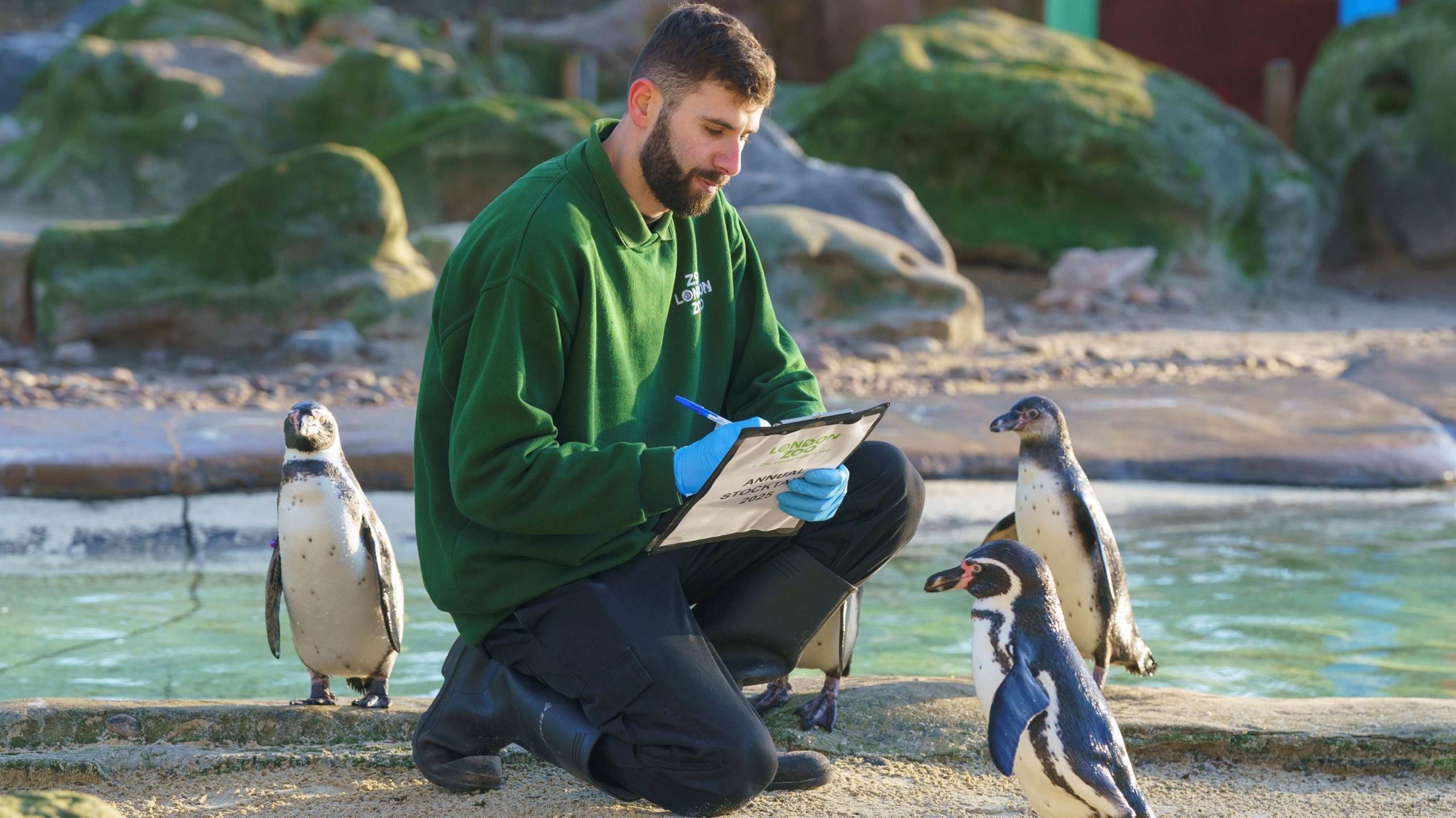Rare otter pups take their first dip at London Zoo
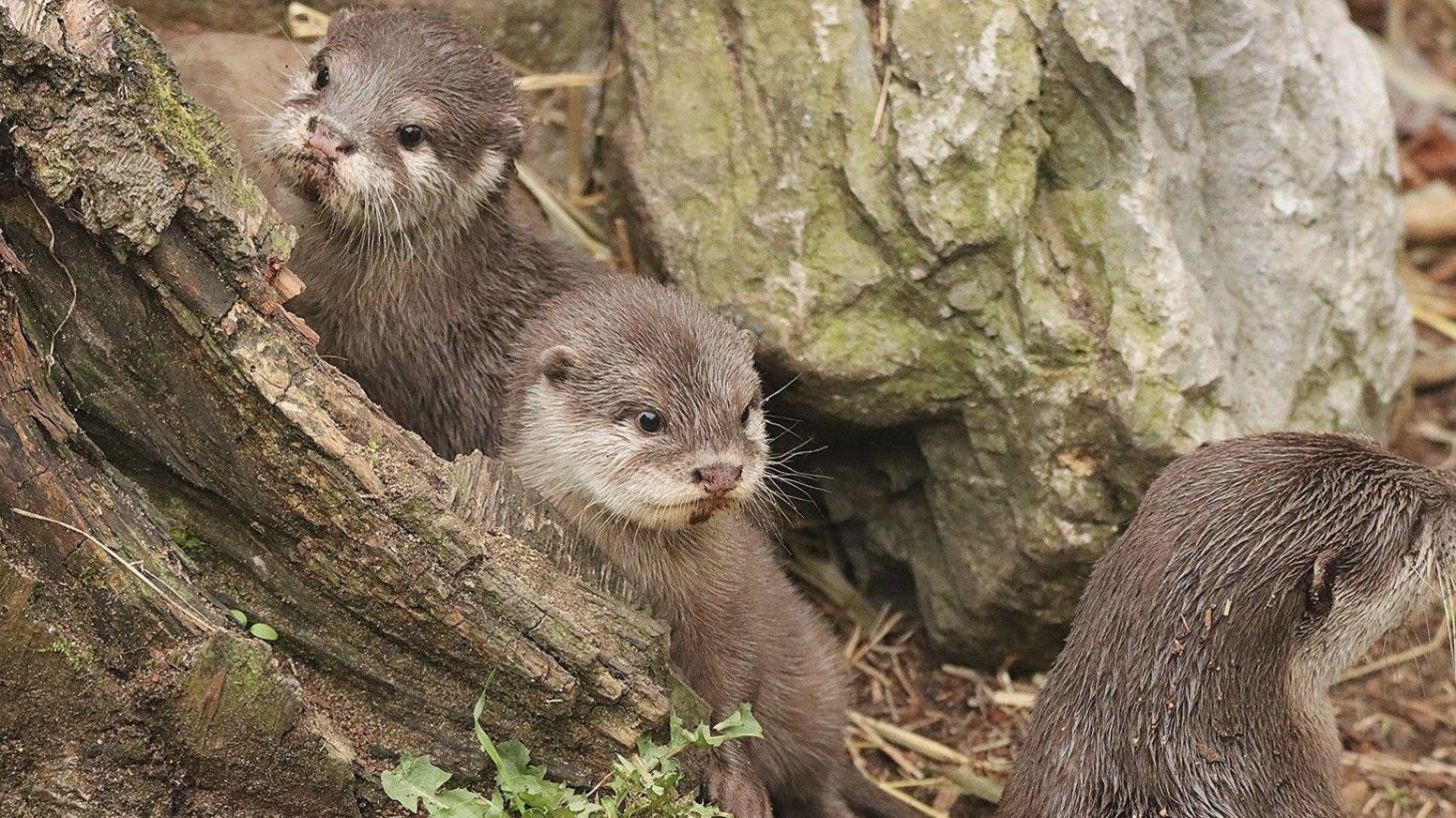
The two Asian short-clawed otter pups were born in January to first-time mother Midge
- Published
A pair of otter pups at London Zoo have taken to the water for the first time in what keepers have called "a key development".
The Asian short-clawed otters, born in January, spent their first few months in a nesting box, nursing with first-time mum Midge.
The zoo said recent warm temperatures led to the intrepid duo venturing into their enclosure and attempting some underwater dives.
London Zoo's otter keeper Amy McKillop said watching them take to the water was "really exciting".
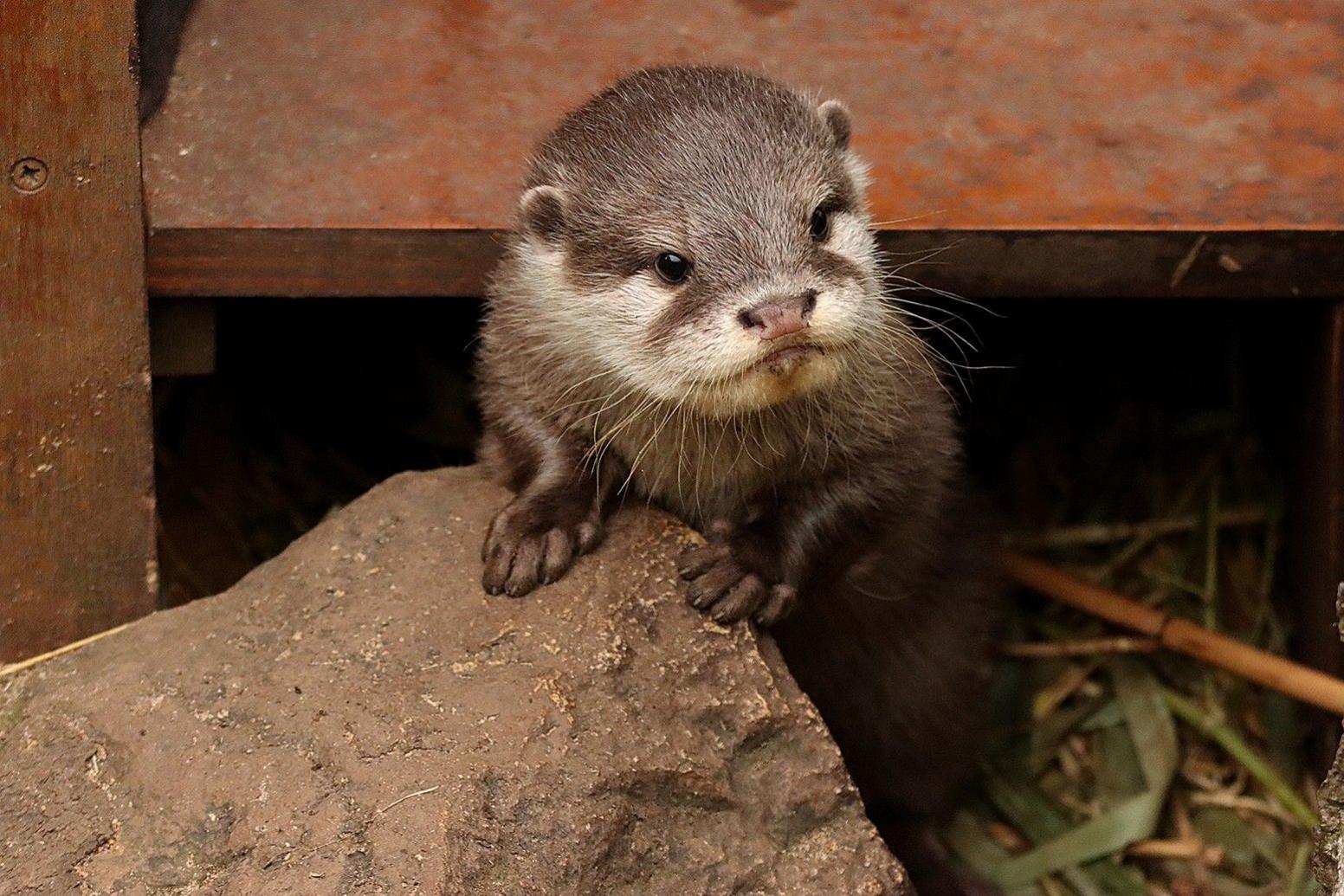
The species faces threat from water pollution, hunting, deforestation and habitat destruction
Asian short-clawed otters
Also known as Asian small-clawed otters or oriental small-clawed otters
The smallest of thirteen species of otter
Their claws reach no further than their digits, allowing them to use their paws to feel for food in muddy banks
They catch their prey with their partially-webbed paws instead of - as other otters do - with their mouth
They have streamlined flattened tails to propel them through the water
They can see equally as well in water as out
The young do not open their eyes until they are 40 days old, taking their first swim after about nine weeks
The siblings have been observed daily by zookeepers keen to see when Midge - and dad Siyam - would be ready to let their young take their first swim.
The pups - yet to be named and sexed - are part of the European breeding programme for the vulnerable species, which faces loss of their natural habitat in the wild.
Their sexes will be confirmed by vets once they are older and more independent from their parents.
Ms McKillop said the pair have "grown so much" in the past few weeks.
"Their curiosity and energy are really starting to shine through. To see them developing so well, and now out in the water splashing around, is fantastic."
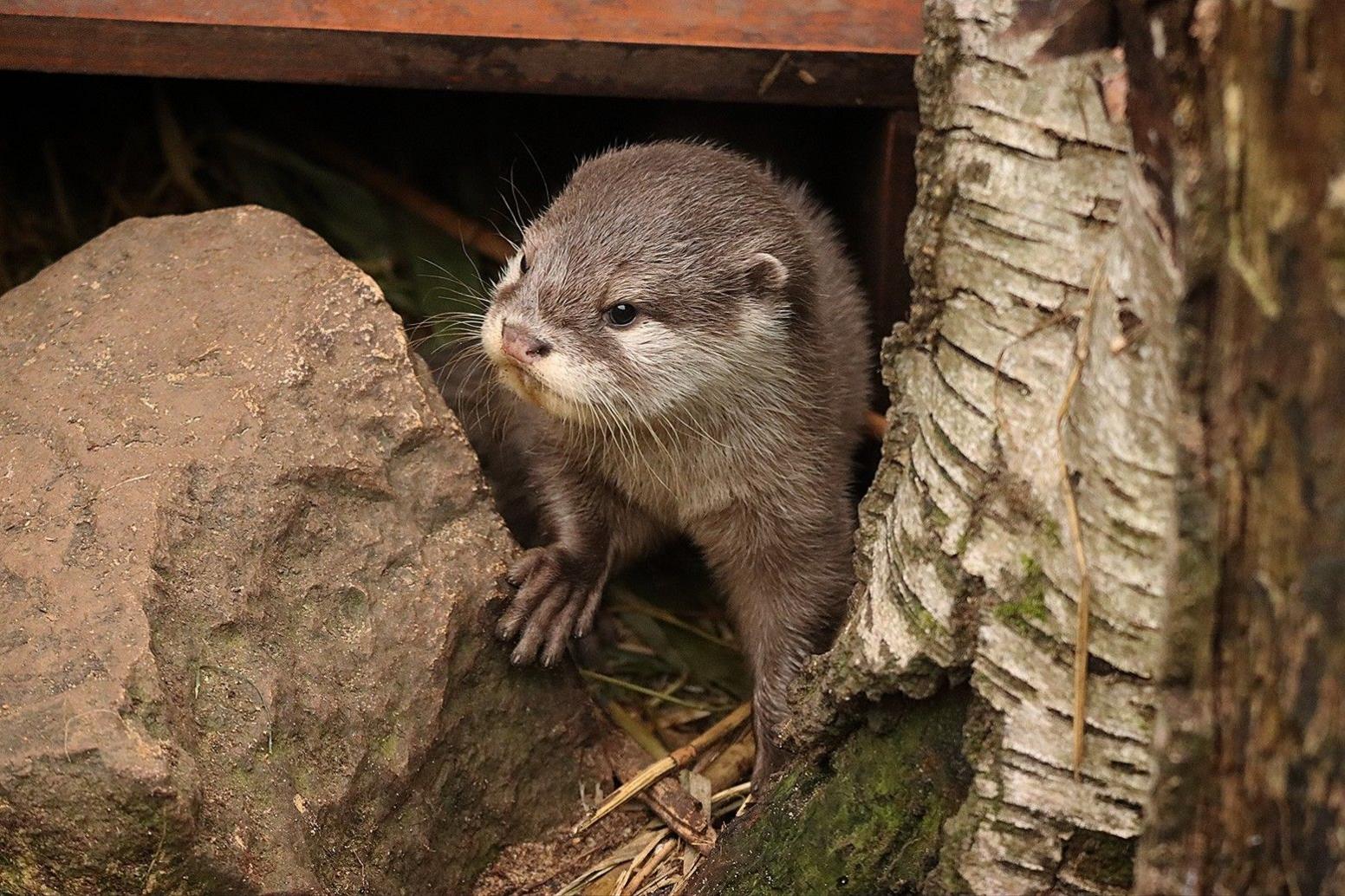
Asian short-clawed otters face habitat destruction in the wild
She said Siyam and Midge have been "fantastic" as parents, particularly since they are Midge's first litter.
"They've been on-hand every step of the way, keeping a cautious eye on their offspring, making sure they're staying safe and warm in the den for as long as possible – and bringing them back in when it's time for bed."
Listen to the best of BBC Radio London on Sounds and follow BBC London on Facebook, external, X, external and Instagram, external. Send your story ideas to hello.bbclondon@bbc.co.uk, external
Related topics
More on London Zoo
- Published19 February
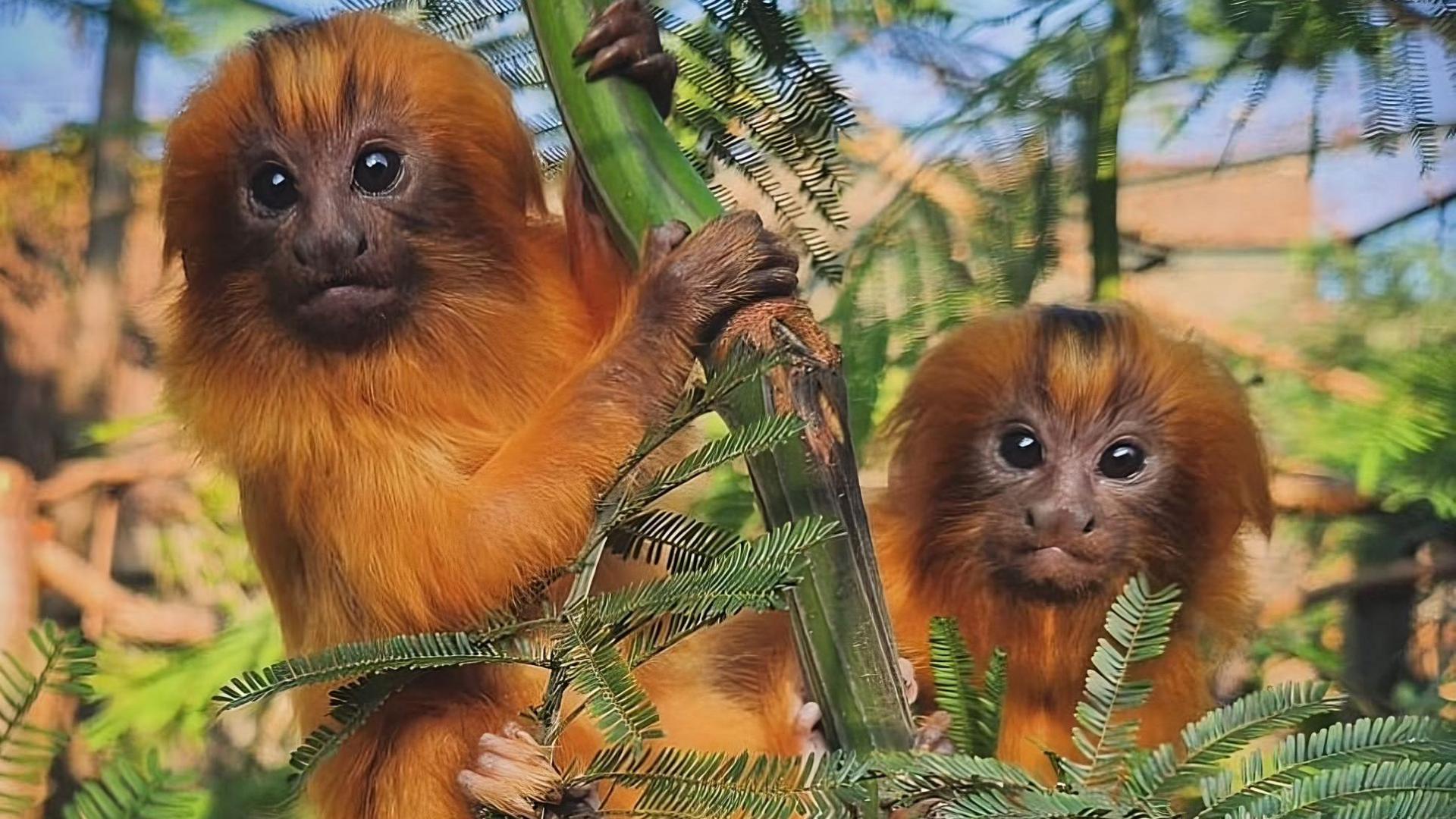
- Published18 February
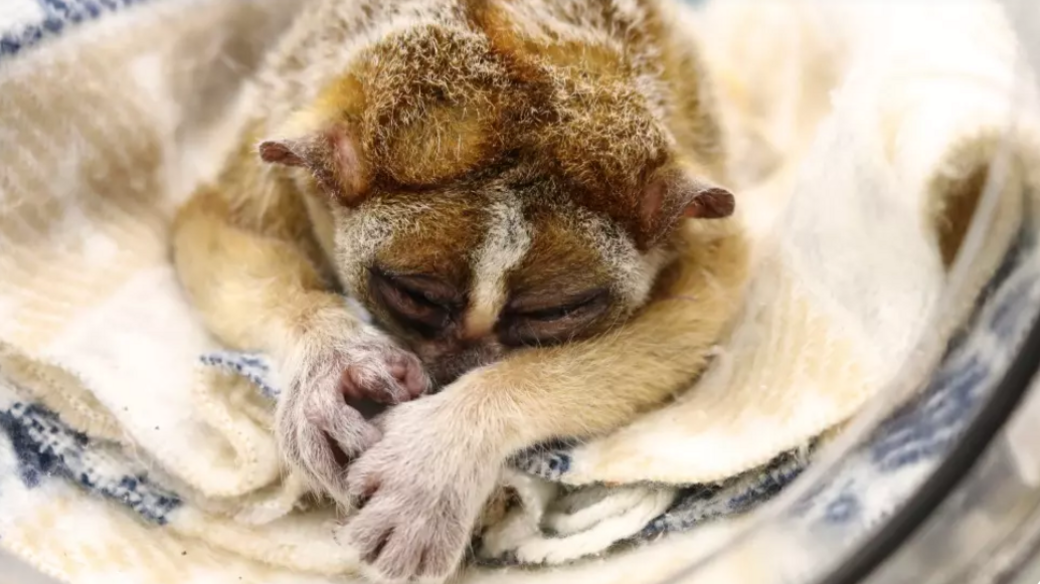
- Published3 January
